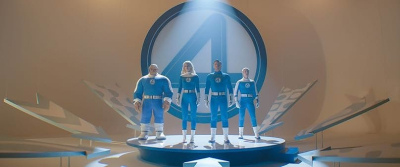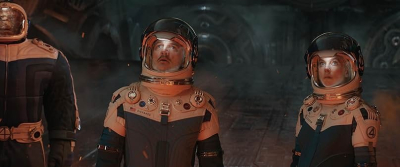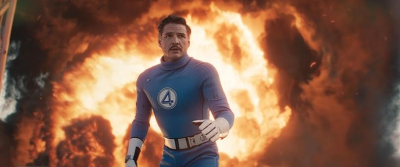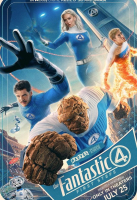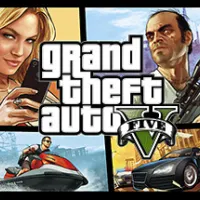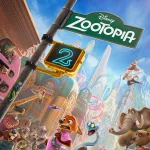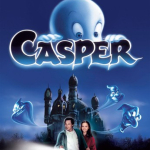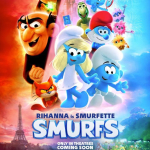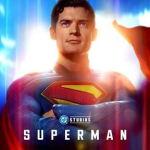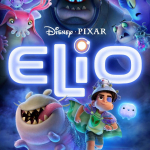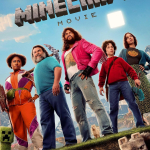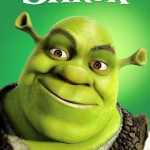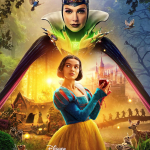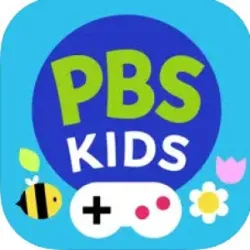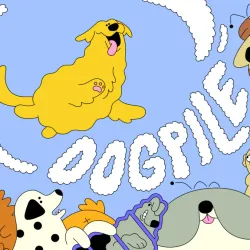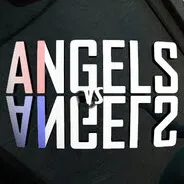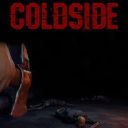The Fantastic Four: First Steps review
The Fantastic Four: First Steps
Marvel’s The Fantastic Four: First Steps arrives not as just another tentpole blockbuster, but as a brazen new interpretation of what superhero cinema is capable of. Directed by Matt Shakman, the film dances between vintage futurism and resonant family drama, meticulously reinventing the Fantastic Four without nostalgia’s usual pitfalls. This is less a nostalgic reboot and more a smart, ambitious act of worldmaking that frees Marvel’s First Family from their past cinematic stumbles, finally giving them the voice—and visual universe—they’ve always deserved.
Retro-Futurist New York: The City of Tomorrow
Shakman launches viewers straight into a parallel 1960s teeming with invention and optimism. Here, the technological dreams of the era aren’t just realized—they’re the norm. Sleek air-cars zip through the skyline. Neon-lit billboards press hope on every street corner. Within this world, the Baxter Building isn’t just a base, it’s a cultural hub and symbol for collective advancement, anchored by Sue Storm’s globally influential Future Foundation. Every corner of the film’s set design and costume work seems to hum with possibility, grounded in a pulpy optimism that pulses through every frame.
The narrative cleverly foregrounds a world where these four are not outcasts, but adored scientific celebrities—cultural icons as much as heroes, tasked with both planetary defense and shepherding an age of progress. Their presence has shifted geopolitics, daily life, even personal identity. It’s an environment where scientific advances are as trusted and revered as the people who create them.
The Team Dynamic, Rewritten
Gone is the fumbling formation and uncertain teamwork found in other versions. Instead, the film introduces Reed, Sue, Ben, and Johnny as a tight, if imperfect, family—one whose chemistry is lived-in and full of multidimensional friction. Pedro Pascal’s Reed Richards is no distant absent-minded professor, but an anxious, protective leader, profoundly aware that his ideas shape, and sometimes endanger, the world. Vanessa Kirby renders Sue Storm steadfast and intellectual, bearing not just the weight of power but the expectation of leadership and soon, motherhood.
Ebon Moss-Bachrach delivers Ben Grimm with dry, battered wit; his motion capture performance is bracingly human, capturing The Thing’s internal tug-of-war between toughness and longing for acceptance. Joseph Quinn re-energizes Johnny Storm, dialing up his flamboyant confidence while threading in vulnerability; his arc glimmers with the tension between showmanship and the need to matter to someone real.
The Cosmic and the Everyday Meld
Instead of falling into villain-of-the-week tropes, First Steps elevates its narrative with the arrival of Galactus, given form and pathos by Ralph Ineson. This Galactus feels inevitable—an ancient, planetary force whose presence transforms the film’s tone and scale. Julia Garner’s Silver Surfer, Shalla-Bal, isn’t just a herald, but a living paradox of power and imprisonment. Their dynamic is pure Marvel myth, but told with an earnestness that gives the stakes emotional heat.
The greatest battles, however, play out at home: Reed and Sue’s uncertainty about raising a child, Ben’s struggles with isolation, Johnny’s anxious performativity. H.E.R.B.I.E. unexpectedly steals scenes, acting not only as the team’s loyal helper but a voice for the simple joys and anxieties of belonging. The film never forgets that even as worlds tremble, the Fantastic Four’s greatest challenge remains growing and staying together.
Visual Feats & Sonic Flourishes
Practical effects are king: the team’s Fantasticar, the Excelsior spaceship, and the offices of the Future Foundation burst with tactile detail, while Jess Hall’s cinematography makes full use of color to evoke both nostalgia and newness. The Negative Zone sequence, rendered with inventive lighting and stylized effects, stands out as a haunting vision of both promise and peril.
Michael Giacchino’s lush score moves deftly with the film’s heartbeat—from sweeping orchestral themes of ambition and hope to delicate, personal motifs underscoring domestic and existential uncertainty. There’s a tonal maturity here, pushing Marvel’s sonic identity in directions rarely explored this deeply.
Conclusion
The Fantastic Four: First Steps dares to see the future not as a threat but an opportunity, using the imagination of the past to ask essential questions about tomorrow. It’s a singular mix of high-concept adventure and sharply observed humanity—less about superpowers, more about what it takes to keep faith with each other when everything is at stake. Whether you choose to watch, stream, or download it online, this film stands as one of Marvel’s most sophisticated and hopeful blockbusters, confidently signaling an MCU that’s ready to evolve.
How to watch The Fantastic Four: First Steps online
After its July 25, 2025, theatrical release, The Fantastic Four: First Steps will become available on Disney+ for streaming (with download access for subscribers). You’ll also be able to rent or buy the film digitally on Amazon Prime Video and Apple TV, which offer streaming and offline downloads. Further downstream, Hulu or Peacock may feature the title, but as with most new releases, free or unblocked access will be delayed. US age rating is PG-13, fitting Marvel’s blend of fantasy action and deeper themes.
Pros
- Gorgeously original alternate-universe setting full of detail and personality
- Main cast’s performances have warmth, depth, and subtle humor
- Cosmic stakes are earned, not forced, thanks to Galactus and Silver Surfer’s complexity
- No tedious origin story recaps—plot respects both newcomers and fans
- Relationships feel real, messy, and central to the movie’s appeal
- Practical and CGI effects blend seamlessly for immersive worldbuilding
- Score supports, never overwhelms, the drama
- Strong, philosophical undertones rarely found in the genre
Cons
- Focus on family and emotion slows pacing in parts
- Lack of major MCU crossovers may discourage franchise completists
- Secondary antagonists feel underdeveloped amid the grand spectacle
- 1960s setting and stylization may require an adjustment for some viewers
